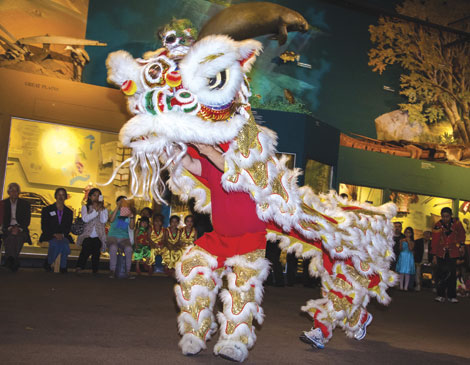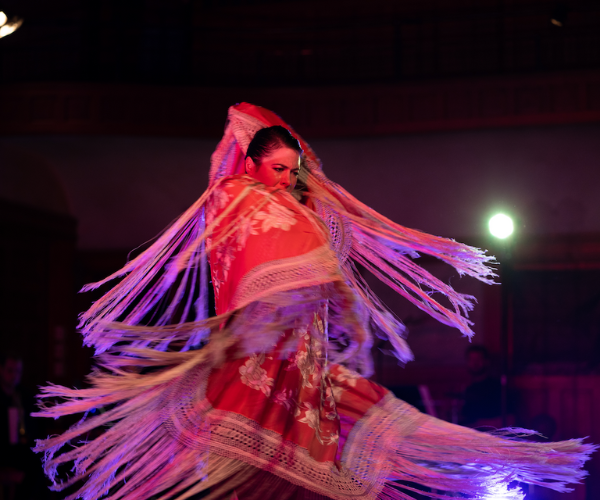A red and gold Chinese lion snakes through the door and snaps its 40-pound head at the sense of danger. During the 15-day Lunar New Year festival, the creature welcomes good fortune and dissipates ill will. China’s most important holiday, which begins Jan. 28, honors deities and ancestors to ensure a prosperous year. Kwan Family Lion Dance preserves the legend of the lion deity by performing at restaurants such as Zieng’s Asian Bistro in Crocker Park. “Every New Year each place wants good luck and good fortune,” says 16-year-old Alex Kwan, who carries on the family’s 30-year legacy by donning the two-person costume with his 13-year-old brother, Christopher. “What we do is go around to restaurants, or metaphorically small villages, and rid them of evil spirits.” He and his dad, George, unearth some of the meaning behind the performance.
Prowl Around // As soon as the lion enters a restaurant, it’s faced with an altar — an elaborate array of meats, vegetables, fruits and idols that pays respect to ancestors and wards off evil. A common cornerstone of Asian households and restaurants, the altar moves to the front of the restaurant at the start of the New Year. “It becomes that spooky area where good luck can come in but also bad luck,” says George. “We start from the outside in because we have to clear away things.”
Fortune Flick // A head of lettuce and a handful of oranges are offered to the vegetarian Buddhist lion at each performance. But in a moment of supernatural sacrifice, it hurls back the meal for the patrons’ sake. “You have to roll the orange down the mouth and then flick it,” says Alex. “When you throw it it out, you are giving it to other people out of generosity. The lettuce is practically the same concept. It gives the restaurant good fortune, ushers in the New Year and helps them flourish.”
Mirror Image // “The head of the lion has the most symbolism,” says Alex. “They have two mirrors: The one in the front is to see into the future, and the one in the back is to reflect on the past.” Before a performance, the lion undergoes a ceremony called Hoy Gong where it is brought to life by having the mirrors and eyes marked with dots of paint. If the lion is seen without its dots, it’s considered a blind bearer of bad luck.
Silent Drum // Drums act as the lion’s heartbeat throughout the performance. Depending on volume and tempo, it leads the lion to fall asleep or fight off spirits. “Gongs, symbols and drums scare away the bad spirits and the things that are lurking around,” says George. “It helps usher in or clear a pathway for good luck.”

An Asian Dance Ritual Ushers In the Lunar New Year
Kwan Family Lion Dance has been performing during the Chinese holiday for 30 years.
theater & dance
9:00 AM EST
February 2, 2017



